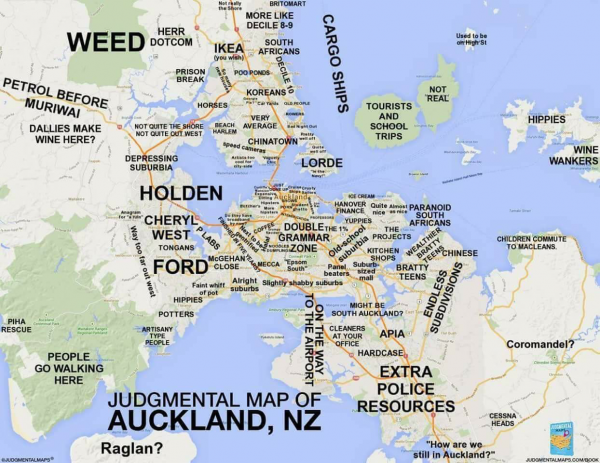
“Well, I tried to start a revolution, but didn’t print enough pamphlets so hardly anyone turned up. Except for my mum and her boyfriend, who I hate. As punishment, I was forced to be in here and become a gladiator. Bit of a promotional disaster that one, but I’m actually organizing another revolution. I don’t know if you’d be interested in something like that? Do you reckon you’d be interested?”
Korg – Thor: Ragnarok
I like the Greens, I support the majority of their policy and I’ve voted Green most of my life.
But.
They are chequers players trying to play chess and the leak today of an internal strategy paper is so woeful and concerning, it’s like catching your Surgeon checking on how to do your operation on wikipedia.
Let’s break down the Green Party strategy and consider if they have actually comprehended what they are saying and doing here…
The Green Party is considering opposing NZ First’s “Waka Jumping” bill – a deal struck in coalition talks – unless Labour gives it a national “Parihaka Day”.
Green Party justice spokesperson Golriz Ghahraman, in an internal email obtained by Stuff, suggested some horse trading with Labour to acknowledge the fact the party has long opposed waka jumping legislation.
…firstly – what the fuck are the Greens doing having this kind of discussion on an unsecured email and how the Christ did it get into the hands of the Media?
In the email Ghahraman said Little had “unlawfully” shown her a “ministerial advice paper” about proposed waka jumping legislation but not the full text of the bill.
…secondly, it’s not ‘unlawfully’ but why the fuck drop Andrew Little in the shit even if it was? So what the Greens are saying is they will nark on you if you share them information?
This isn’t so much burning bridges as napalming them.
The response from the Greens is even more eye rolling…
“It’s not surprising that Labour Party and Green Party MPs are having these kinds of constructive conversations and working together; in fact, that’s what New Zealanders expect of government parties.
“It’s commonplace for ministers and MPs to have these kind of conversations – that will continue,” the spokesperson said.
…yes. that’s right, MPs do have these discussions, and the public expects that. What the public don’t expect is having that dialogue described as ‘unlawful’ or using that information for Party self-aggrandisement!
It continues…
A “Waka Jumping Bill” first arose in 2001 to stop MPs defecting to another party – as happened after the 1996 National-NZ First coalition government collapsed.
The Green Party is aware of the “political tensions” its opposition to the bill could cause.
In a caucus briefing note obtained by Stuff it was outlined that a “strong communications plan” would be needed by the Greens regardless of whether the party chose to support or oppose the bill.
“We will need a strong communications plan to either explain a changed position, or to front foot any political tension or risk of being seen as an unstable part of Government, if opposition went public.
“If we supported the bill we would also need an internal plan to communicate the decision to members and supporters,” the briefing note stated.
The bill’s aim is to preserve the proportionality of Parliament by making an MP who entered Parliament via a party list resign from Parliament rather than switching allegiances.
Labour has included a clause in the bill that means two-thirds of a party caucus would have to agree with a party leader’s decision to get rid of an MP from caucus.
The Greens have asked Little to amend the bill in respect of the way a party leader could trigger the ousting of an MP. That is, a leader would have to show an MP had acted inconsistently on party policy or ethic on a persistent basis or substantial level – “not just a one-off vote or a minor issue”.
The caucus briefing noted Little was “open to further suggestions”.
“Given the timeframes and that Labour will want to know our position before a bill is introduced to the House, we will probably need to inform them of an initial position on the issue without having seen the legislation,” the briefing note stated.
“The Government won’t have the numbers to pass the legislation without us, and if we decided to oppose it then they would need to consider other options such as approaching the National Party, who opposed the 2005 bill.”
“Opposing the bill would cause political tensions given the inclusion of the bill in the Labour-NZ First coalition agreement and the apparent importance the Government is placing on it.
“However the nature of this Government requires all parties considering issues on a case-by-case basis and this is an area we have had a different position to that of Labour and NZ First, and our Confidence and Supply Agreement gives us the independence to choose to vote against it,” the briefing note stated.
“Supporting the bill would be seen as changing and weakening a long standing and public Party position. It would risk criticism from our core supporters and commentators.”
…let’s just pause here and understand and appreciate what the Greens are doing and what they seem to have missed utterly and what they are prepared to ‘horse trade’ all of this for.
Let’s start by asking a simple question shall we?
Why does Winston want this waka jumping legislation in place?
He wants it in place because he knows there is one hell of a global economic correction coming and he knows the first thing the right wing do when a crisis of that magnitude threatens their wealth is they buy who they need to protect that wealth.
Winston is inoculating his own Party from having MPs who can be bought by National when the economy hits the skids, that’s why he included it in the negotiations with Labour. With that law in place he knows he can hold his Party together when the worst hits. This is a stability measure that holds the new Government together, what the internal memo shows is that the Greens seems to have no fucking clue as to why Winston wants this law, and they don’t understand that passing it strengthens the stability of the Government they themselves are part of!
This law would actually strengthen their own position!
They are trying to gain leverage over a law that itself strengthens their own Government’s longevity.
It’s like trying to bet on the Titanic sinking while you are still on the bloody Titanic!
What they should be saying is ‘we understand how important this is for the Government and we are prepared to support that for the strength and unity of this new Government. In return, we would like a fair hearing on an issue that is important to us’.
Because they have no idea why Winston wants the law change or see how it’s actually beneficial for them long term, they merely see it as an opportunity to extort the Government!
And what is it they want to extort the Government for?
Parihaka Day?!?
Parihaka Day?!?
WHAT TE FUCK?
Look, let me first state I am in 100% favour of a National Day for Parihaka, I am. The outrageous injustice committed at Parihaka against peaceful resistance is a shameful and empowering moment from our history that demands and deserves respect.
No qualms there.
But are you fucking seriously telling me that of all the issues the Greens could be getting serious consideration on in return for their agreement with waka jumping legislation (which ultimately ensures they get a full 3 year term) is Parihaka Day?!?
What about climate change in every school curriculum?
What about a real lift in benefits for beneficiaries?
What about a binding referendum on Cannabis?
What about Free Public Transport for students?
What about dumping all punitive measures used against the poor?
Of all the issues they wish to progress, they are prepared to sabre rattle over a law that secures their 3 years for Parihaka Day?
They want to blackmail the Government into supporting an idea that stands on its own two feet? Wouldn’t that in fact dishonour the very values Parihaka Day is supposed to espouse?
Are they listening to what they are saying for Gods sake?
This leak means the idea is utterly dead. There’s no way Labour or NZ First could look like they have been blackmailed into supporting Parihaka Day when they would have likely supported it anyway.
I’ve had my concerns about the Greens for some time, this leak has been a cringeworthy exercise in seeing how right those concerns were.
The Greens really have to lift their game dramatically if they want to be part of a functioning Government.














